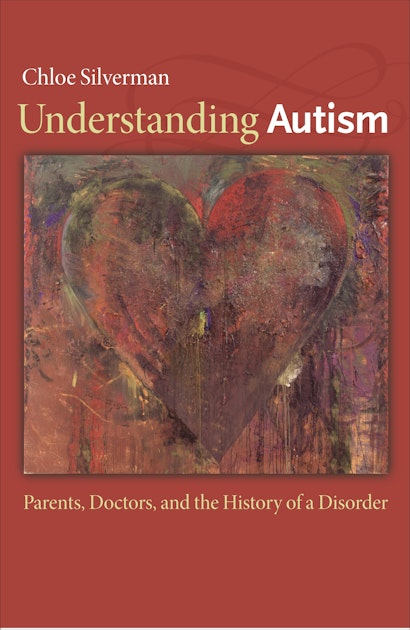Autism has attracted a great deal of attention in recent years, thanks to dramatically increasing rates of diagnosis, extensive organizational mobilization, journalistic coverage, biomedical research, and clinical innovation. Understanding Autism, a social history of the expanding diagnostic category of this contested illness, takes a close look at the role of emotion—specifically, of parental love—in the intense and passionate work of biomedical communities investigating autism.
Chloe Silverman tracks developments in autism theory and practice over the past half-century and shows how an understanding of autism has been constituted and stabilized through vital efforts of schools, gene banks, professional associations, government committees, parent networks, and treatment conferences. She examines the love and labor of parents, who play a role in developing—in conjunction with medical experts—new forms of treatment and therapy for their children. While biomedical knowledge is dispersed through an emotionally neutral, technical language that separates experts from laypeople, parental advocacy and activism call these distinctions into question. Silverman reveals how parental care has been a constant driver in the volatile field of autism research and treatment, and has served as an inspiration for scientific change.
Recognizing the importance of parental knowledge and observations in treating autism, this book reveals that effective responses to the disorder demonstrate the mutual interdependence of love and science.
"Understanding Autism . . . is the most sensitive account by an academic historian."—Steven Shapin, New Yorker
"Understanding Autism is the most sensitive account by an academic historian."—Steven Shapin, The New Yorker
"For Chloe Silverman, 'understanding autism' means understanding how autism has become a diagnostic category and why for some people, in autism advocacy groups for example, it isn't a pathology at all but just a different way of seeing the world. . . . Silverman's remarkable book is a testimony to the difference parents of autistic children have made to the understanding of autism, and it also has things to say about the difference a parent's understanding can make to understanding many other things that children suffer from."—Adam Phillips, London Review of Books
"Autism remains a contested condition, and given the steep rise in research, diagnosis rates and media coverage, the debate is set to run and run. Science historian Chloe Silverman gives a balanced, sensitive social history of autism that unflinchingly covers many controversial byways. She explores the theory and biomedical advances, and how gene banks, schools and autism organizations have enriched understanding—augmented by parents of children with autism, whose experiences have informed and inspired much research."—Nature
"Comprehensive, well annotated, and fascinating to read, Understanding Autism will appeal to readers from a broad variety of disciplines. Silverman provides an honest and refreshing perspective on encouraging dialogue about a condition that will likely continue to be in the public spotlight for decades to come."—Science
"Silverman provides a very good account of autism; knowledgeable readers will find themselves nodding along with the details. The author excellently portrays the relationship of autism with its social history."—Choice
"Silverman's book presents a vivid picture of the ongoing and somewhat dialectical (in the Hegelian sense) relationship between parents of autistic children and professionals who specialize in autism."—W. R. Albury, Bulletin of the History of Medicine
"Understanding Autism provides a much-needed and thorough history of autism. In addition, it makes a convincing case for incorporating affective relationships into science and technology studies and our understandings of the foundational elements of expertise. At moments in the book, however, the tension between affect and science are incompletely resolved. These moments of tension will likely prove elucidating in future research."—Marissa King, American Journal of Sociology
"Too few books tell the history of autism. Chloe Silverman bravely takes this on, without avoiding the difficult eras in this history. Sensitively exploring Bruno Bettelheim and Andrew Wakefield's involvement, while skillfully painting the evolution of modern genetic theory, Silverman describes even the more controversial treatments with a sense of balance and calm. Her book unearths new insights."—Simon Baron-Cohen, University of Cambridge
"This fascinating book combines historical perspective with ethnographic investigation of the grassroots autism movement. What unites past and present is the unwavering power of parents to influence the dizzying array of theories, practices, and interventions that have been advanced in response to the challenges posed by autistic children. Parental love and labor, long overshadowed by scientific discovery and professional authority, finally take center stage. Silverman makes a persuasive case for the interdependence of affect and objectivity in autism's dramatic narrative."—Ellen Herman, University of Oregon
"This timely book traces the history of autism as a diagnostic category, the various ways that researchers, practitioners, and parent activists have interpreted and acted upon autism, and some of the current controversies surrounding this contested diagnosis. With sensitivity and respect, Silverman makes a significant contribution by addressing seriously the role of love in the production of scientific knowledge, the practice of biomedicine, and the advocacy and research of parents."—Gail H. Landsman, author of Reconstructing Motherhood and Disability in the Age of "Perfect" Babies

